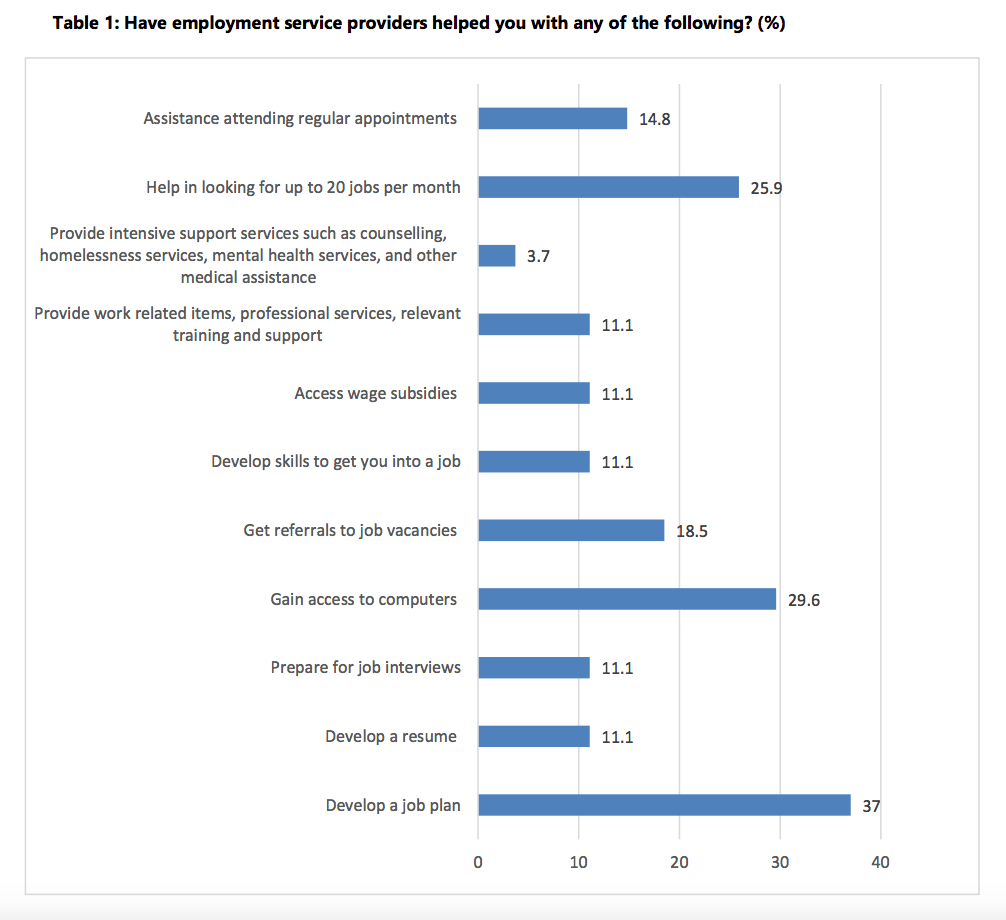Young people left powerless in “callous” employment service system
Young job-seekers in South Australia have described feeling powerless, humiliated and frustrated by an employment service system they say is punitive and one-sided.

A Youth Affairs Council of South Australia survey of approximately 40 young job-seekers aged 15 to 24 in South Australia found the majority felt employment services failed to help them get a job.
The survey, published in YACSA’s submission to the Federal Government’s Future Employment Services advisory panel, questioned respondents on their experience trying to secure a job with mostly federal-funded employment service providers.
Just 18.5 per cent of survey respondents felt employment service providers assisted them with referrals to job vacancies.
Eleven per cent of respondents felt employment services adequately helped them to develop job-ready skills to secure employment, while only 37 per cent of respondents felt their employment service provider offered them adequate assistance to create a job plan.
Employment services were regularly characterised as being a “hindrance”, with some young people reporting they had secured employment without provider intervention.
More than 50 per cent of respondents reported that providers failed to deliver on promises to them regarding employment, training, assistance with resume development, wage subsidies or the provisions of work-related items such as clothes for interviews or travel subsidies.

Graph: Youth Affairs Council of South Australia (2018), Future Employment Services panel submission.
YACSA’s submission describes one respondent being left in significant debt after their employment service provider promised to contribute financially to the purchase of a laptop, which they never paid.
“I felt unwelcome,” one respondent wrote in response to a question asking how they felt about employment services.
“The service made me feel degraded. They told me I was asking too much for a salary (I asked for $45,000 per year). [There was] no support for someone who has two degrees but struggles to get into the market.”
Another respondent wrote: “In most cases I found that employment services are only there to tick boxes.
“They show little interest in the individual and have a great emphasis on doing any work regardless of the impact on a person’s wellbeing or the mental health impacts of doing said work.
“They were callous, disconnected and disinterested in my needs and ability.”
Most young people also felt that employment service providers focussed almost entirely on the requirements mandated by Centrelink and not on supporting the personal or professional development that some respondents felt they needed to compete more effectively in a challenging job market.
Latest data from the Australian Bureau of Statistics shows there are currently 49,700 people – 17,700 of whom are young people aged 15 to 24-years-old – who are vying for only 11,400 jobs in South Australia.
YACSA executive director Anne Bainbridge described the process young people go through with employment services as “cynical”.
“We weren’t surprised by the findings to be honest because young people have been speaking to us about their concerns with employment service providers for years,” she said.
“It’s such a cynical process, going through those job providers when the job market is so flat and there isn’t the jobs out there for young people to fill.”
Former Minister for Jobs and Innovation Michaelia Cash announced in January that the Federal Government was establishing an expert panel to advise on the development of a future employment service model ahead of the current employment service contract end date in 2020.
At the time, Cash said that the current employment service model had achieved “good outcomes”.
She said the current model had led to more Australians being employed through the government-funded employment service Jobactive than under previous programs.
“The Government wants to build on this record and improve services for our most disadvantaged Australians,” she said.
“We want to ensure employment services remain effective in an environment where rapid technological change is creating new jobs and industries.”
Over 295 submissions were handed to the panel, which will be used to make recommendations to inform a new employment service model.
Bainbridge said she hoped that a new model would lead to greater investment in staffing for job service providers so that struggling young people could receive more one-on-one support.
“There needs to be a more compassionate, flexible and tailored service that’s respectful of the limitations of the jobs market,” she said.
“We can’t continue with a system that isn’t providing for young people when there is such a lack of entry-level jobs out there.”




